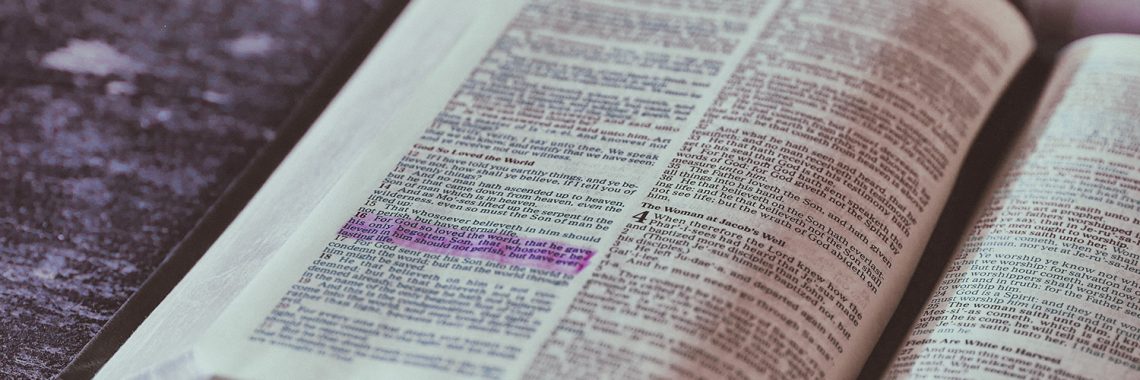A dramatic vision of an apocalyptic set of events, from natural disasters of biblical proportions to wars and political upheaval, set the scene two weeks ago, on the First Sunday of Advent. Although terrifying at first hearing, in biblical times, it was invoked as the means of consolation to and liberation of the oppressed and the helpless. It was combined with the call for preparedness and watchfulness so as not to miss its arrival. Interestingly, despite the dramatic, cosmic-scale prophetic visions of supernatural events, people in biblical times knew well that such dramatic changes would come true in a much more subdued manner, usually through unexpected political changes. In the times of Israel’s Babylonian exile – some 2600 years ago – the Jews were eventually allowed to return to their homeland after a palace coup. Last week, we witnessed the sudden, unexpected fall of the Assad regime in Syria. That was a dramatic turn of events of high intensity but relatively rare. More common are dramatic changes caused by the appearance of unassuming individuals, initially ignored by the powerful; think of Nelson Mandela, Martin Luther King, Mahatma Gandhi or Lech Walesa of the Solidarity movement in communist Poland. The arrival of John the Baptist on the banks of the river Jordan – as we heard last Sunday – was in a similar vein. He was announcing the fulfilment of old prophecies that recalled visions of massive ground levelling on an industrial scale: “Every valley shall be filled, and every mountain and hill shall be brought low.” (Luke 3:5) Yet even those who heeded him didn’t grab shovels or pickaxes to make it happen; they understood it was a metaphor and scratched their heads as what it meant in practical terms. They looked for advice on how to get it right, and that’s where we are with today’s gospel reading.
“What shall we do?” Three times was John the Baptist asked this question by different groups of people. He gave three different answers, each related to the specific circumstances of those who’d asked. Those pieces of advice had a few things in common. Firstly, his recommendations were surprisingly low-key, practical and achievable for a supposedly thunderous outrider of the incoming apocalypse. No earth-shattering calls for spectacular, Herculean good deeds. Quite the opposite; people around them probably wouldn’t notice most of them at all. Partially because the second common factor in those deeds was turning away from one’s self-centredness, which took the form of hoarding goods, exploiting a position in society, or abusing power. On the face of it, sharing goods might seem a bit more noble than simply restraining oneself from taking advantage of one’s position of power. In practical terms, though, either giving away earnings or self-restraint in raking them in can be an unsurmountable challenge to those dangerously focused on themselves and their profits. John the Baptist’s advice might have left the bystanders disappointingly underwhelmed. They would have welcomed much harsher words towards the two professions commonly seen as corrupt: tax collectors and law enforcement.
The second part of today’s gospel reading presented John’s response to such expectations. Firstly, he refused to take advantage of his popularity and claim any greater power or influence than had been granted. He acted in line with the advice he had given others, explained by these words: “I baptise you with water, but he who is mightier than I is coming. […] He will baptise you with the Holy Spirit and fire.” John also refused to take a high moral ground and self-appoint himself as a judge, leaving that role to his successor: “He will baptise you with the Holy Spirit and fire. His winnowing fork is in his hand, to clear his threshing floor and to gather the wheat into his barn, but the chaff he will burn with unquenchable fire.” Today’s gospel passage closed with an interesting turn of phrase about John: “With many other exhortations he preached good news to the people.” He kept doing his job as well as he humanly could. What his listeners did with that was up to them.
“What, then, shall we do?” The question remains relevant to each one of us who wants to practise the faith in everyday life beyond pieties and devotions. How should we apply the ethics and morals of the Christian faith to our ever-challenging situations? Any specific answers depend on your particular circumstances. But the main principle remains the same as presented by John the Baptist and repeated in a very clear way by St Paul in his letter to the Colossians: “Obey in everything those who are your earthly masters, not with eyeservice, as men-pleasers, but in singleness of heart, fearing the Lord. Whatever your task, work heartily, as serving the Lord and not men, knowing that from the Lord you will receive the inheritance as your reward; you are serving the Lord Christ.” (3:22-24) This attitude might not bring you quick applause or rain rewards on you; more likely, it might go unnoticed for a long while. However, in the longer term, those around you will think: “There is something special about him or her.” And you will experience the fulfilment of the words from today’s second reading: “The peace of God, which surpasses all understanding, will guard your hearts and your minds in Christ Jesus.”

